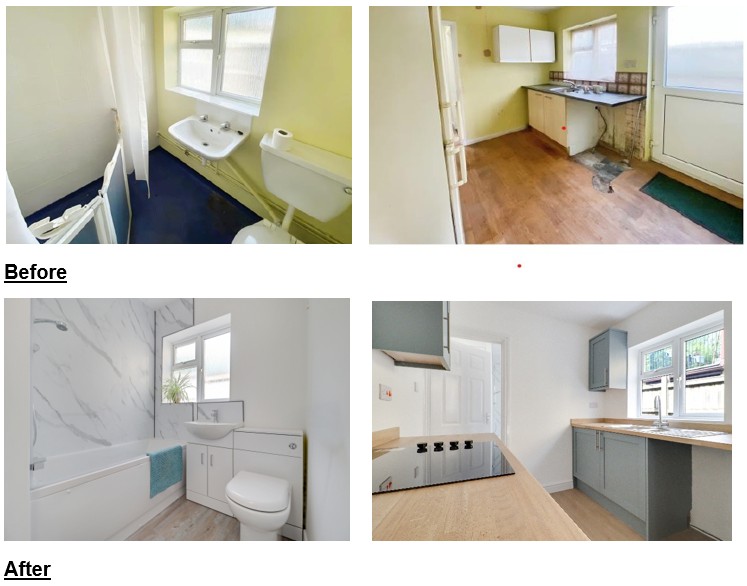
According to the Times, a report by the Education Policy Institute (EPI) reveals that middle-class students dominate degree apprenticeship programmes. Degree apprenticeships combine university-level study with paid, work-based training, leading to a degree-level qualification without having to pay tuition fees. In 2022/23, only 10.7% of degree apprentices were identified as disadvantaged, compared to 19.4% of all undergraduates. The EPI recommends targeted maintenance grants and outreach efforts to improve access for underprivileged youngsters.
iBOSS Comment:
There are undoubtedly distinct advantages for anyone who can get themselves onto an apprenticeship scheme. Certainly if one is academically capable, a ‘Degree Apprenticeship’ should offer better prospects of getting a better paid occupation, but any well-founded apprenticeship, with or without a degree, is likely to offer better employment (& earnings) potential going forward.
I speak as someone who did an apprenticeship many years ago. When not at college I was put to work in the various departments of the firm I worked for. This included everything from working in the machine shops and on the assembly line to working in the PR, Accounts and Marketing departments. The result was that, at the end of my apprenticeship, I not only had a knowledge of the theories of business but also the practicalities of our business. This was a great advantage both to me and my employers.
Whilst mine was a degree-based apprenticeship, many of my fellow apprentices were on other schemes. Many including a day-release college arrangement. They also had the same levels of experience as I did when not at college and thus came out as valuable members of ‘The Team’. The one Caveat that I would put on this, however, is to ensure that the apprenticeship scheme one joins is properly organised and structured and not just designed to provide the business with a ‘Gofer & Tea-person’! Any distinction between ‘Middle-class’ and ‘Disadvantaged’ students should be totally irrelevant. It is ability and ambition that counts!

We know from our clients’ experience that moving into Property development can put a strain on both time, resources and ‘peace of mind’. This is where the iBOSS Interim Management Support (IMS) service can be so valuable to those starting down this path.
What we offer.
A typical example of this is one of our clients who was already involved in another sector of the construction industry. He wanted to become a ‘Developer’ but recognised his lack of experience in both organising and financing such a venture. So he came to iBOSS looking for advice and help in establishing the new business.
Following an initial consultation, it was agreed that we would put in place a version of our IMS service. In this case we proposed that he should start with a property refurb rather than go straight to a full-build project. It was further agreed that having identified a suitable property, one of our directors would then project manage the refurbishment on a day-to-day basis with regular reports to the client.
The advantages
This worked well, with our client being able to continue with his current occupation whilst learning about the challenges and pitfalls of his new business. The other benefits of adopting our IMS service were:
- Short term arrangement or on-going agreement (to suit client if he needs help with the next project).
- No permanent employment costs (sick leave, NI, pensions etc.).
- Access to experienced management at affordable cost.
- Support was put in place quickly.
- We provided specific Project Management support with our director adopting a hands-on approach to everything from identifying and engaging a suitable work team to liaising with suppliers .
The final result was a project that was completed on time and within budget, and a property that could immediately be put up for sale. Our client is now looking with us at his next project.
How to get our help
If you are considering, or already involved in Property Development, but would appreciate some advice or support then contact us and ask for our free 2-hour consultation package. Simply call Phil Jones on 07876 503830, e-mail him at phil@theiboss.co.uk or complete the enquiry form on our web site www.theiboss.co.uk. We look forward to hearing from you.

The initial enquiry
iBOSS was approached, by a legal advisor contact of ours, to help a client of his, who was considering purchasing a well-established retail business. That business is based in Cambridgeshire and trades under the name of Cambridge Interiors. This was a ‘retirement sale’ of a company involved in selling curtains, carpets and other flooring materials. It has been in existence for some 30 years with a solid customer base.
Following an initial consultation with Alistair, the client, we agreed to help him to produce a business plan for the acquisition and development of the business.
The investigation process
Initially a request was made for historical financial information from the seller (sent under an NDA). iBoss reviewed the information provided. Financial analysis quickly identified that the asking price was significantly too high based on the historical financial performance. Furthermore, the seller also wanted ALL the consideration paid ‘up front’.
Before preceeding further, we worked with Alistair on developing a business plan to assess the future viability of the business.
As a result, IBOSS advised the client that, on this basis, we would not recommend that the client acquire the business. He was determined, however, that he wanted to buy the business. Before preceeding further, therefore, we worked with Alistair on developing a business plan to assess the future viability of the business.The result was that there followed a period of several weeks of negotiations, based on the conclusions from the plan. These took place between between our client, his lawyer and the seller.
The Deal
A deal was agreed with the Seller on the following basis:
- An asset purchase agreement not a share purchase.
- The final agreed purchase price was significantly below the originally advertised asking price.
- On completion the initial payment was based on the value of the assets acquired. The remainder of the consideration ‘Goodwill’ was structured on a deferred basis against agreed performance targets.
This resulted in the buyer having no requirement to borrow any money as, with the reduced price and deferred terms. he had sufficient resources to buy the business and provide the initial cash flow injection required.
A few problems
It was also noted, however, that there were a number of other problems to overcome. Specifically:
- Whilst our new client had a sales and marketing background, it was not in retail. The Directors of iBOSS, on the other hand, do have this experience. We were comfortable therefore in advising on this type of business.
- One particular problem was the trading name of the current business. This had not been registered originally and subsequently (some years later) someone else had registered the name. Thus our client was obliged to register his business under a different name. This raised promotional problems in carrying over the existing ‘goodwill’.
- The Seller was well known and respected in the local area. He was not, however, up to date either in terms of IT. This applies to both business data, and the promotional benefits of social media. Luckily our client is.
- Our client had many ideas, both in terms of promotion and expansion of the product range. What he needed, however, was our expertise in developing thess into a proper, logical plan. Exactly what iBOSS is about!
- There were a number of ‘legal’ matters. These were comprehensively covered by his legal advisor, who we are very comfortable working with.
A satisfactory result
The end result was that terms were agreed with the owner and the various members of staff. The purchase has now been completed and our client has taken over the business. He is delighted with the outcome and can now focus on implementing the changes he needs to achieve his growth plans. This includes upgrading the business into a supplier of high-quality interior design, fittings and furnishings. It will cater for for both industry and domestic use. iBOSS will, of course, be on-hand to provide further help and advice as and when needed. . If he needs further funds to support future growth this can be arranged through our associate company Business Finance Services (www.bufinserv.co.uk).
In conclusion
The directors of iBoss believe the lower end of the business sale market is not well served by some Business for Sale websites. We advise caution when trying to buy a business. Make sure to get professional advice from an accountant, solicitor, corporate finance firm or, dare we say, iBOSS!
If you are looking at acquiring a small business simply contact Phil Jones by e-mailing him at phil@theiboss.co.uk . Alternatively, complete our enquiry form and take advantage of our offer of a free consultation.
The Team at iBOSS have many years of experience of both acquiring and selling businesses. This is both on a personal basis and supporting and guiding clients through the process. Here we are talking about established businesses, although we can also help with planning and financing startups.
The following is a summary of some of the main factors to be considered when acquiring or exiting an established business.
Buying a Business
Buying a small business in the UK can be an exciting and potentially lucrative venture. It’s not a process to be taken lightly, however, as it can be fraught with potential pitfalls. These can turn a would-be dream into a nightmare. Buyers, particularly inexperienced ones, need to be aware of the various dangers that could jeopardize their investment.
The following are some of the main dangers:
- One of the most regular mistakes buyers make is not conducting thorough due diligence. This involves a comprehensive review of the business’s financial records, legal standing, operational practices, and market position as well as HR matters. Failure to do so can lead to unpleasant surprises such as hidden debts, legal issues, or operational problems.
- Failing to fully understand the market in which the business operates is another potential danger area! A business might seem profitable, but if the market is in decline or overly saturated, future growth could be limited. It is essential to analyse market trends, customer demographics, and competitors to ensure the business has a sustainable future. Does the business have the right products to meet future demand?
- Like many countries, the UK has stringent regulations governing various business sectors. Ignoring these can lead to hefty fines or even the closure of the business. It is therefore essential to ensure the business complies with all local and national regulations, e.g. health and safety standards, employment laws, and environmental regulations.
- Before acquiring a business it is essential that the purchaser has a clear and realistic plan for the future. This plan must outline the vision, objectives, and strategies for growth. It should also include marketing strategies, financial projections (including acquisition costs), and operational improvements. A well thought out business plan will guide your actions and decisions post-purchase, ensuring a smoother transition and better chances of success.
- Paying ‘over the odds’ for a business is a common pitfall. Ensuring that the valuation is based on objective criteria, including current financial performance, market position, and future potential is essential. Do not ever rely solely on the seller’s valuation. An independent valuation by experts to get an accurate assessment of the business’s worth is highly advisable.
Buying a small business in the UK can be rewarding, if approached with caution and thorough preparation. Avoiding these common dangers can help ensure a smooth acquisition process and pave the way for a successful business future.
This is where we at iBOSS come in! By using our services and experience to conduct necessary due diligence and careful planning, you can save a considerable amount of time and effort and often money! The aim will be to turn your business purchase into a profitable investment.
Preparing to Exit a business
As with acquiring a business, selling one is also a significant milestone that requires meticulous planning and preparation. Whether you’re looking to retire, pursue new ventures, or simply capitalize on your hard work, preparing your business for sale is crucial to maximizing its value and ensuring a smooth transition.
The Team at iBOSS have considerable experience in assisting clients to prepare their businesses for sale. This includes being the Vendor of their own businesses, as well as advising clients. In other words, we have ‘hands-on’ experience. Developing a comprehensive Exit Strategy is essential in achieving a smooth sale and transition. As a guide, the following is a list of some of the important matters to be considered and dealt with.
- Evaluate and update Financial Records.
Ensure that all financial statements are up-to-date and accurate. This to include (but not restricted to) profit and loss statements, balance sheets, and cash flow statements,. Prospective buyers will scrutinize these documents to assess the financial health of your business.
Consider having your financial statements audited by an independent CPA. An audit provides credibility and reassurance to potential buyers about the accuracy of your financial records. - Maximise cash flow and reduce debts to make your business more attractive.
Demonstrating a healthy cash flow and minimal debt will indicate a well-managed and profitable business. - Obtaining a professional business valuation is advisable.
This process will provide a realistic estimate of your business’s worth, which is crucial for setting a fair asking price. iBOSS can advise on suitable companies to use for this.
Having said this, it is a good idea to familiarize yourself with different valuation methods, especially if you are inexperienced in this subject. For example methods such as asset-based, income-based, and market-based approaches. Understanding these methods can help you justify your asking price to potential buyers. Here again iBOSS can provide advice and clarification. - Review Operational Efficiency.
Identify and address inefficiencies in your operations. Implementing cost-saving measures and optimizing workflows will appeal to buyers looking for a well-run business.
This includes standard operating procedures, employee roles and responsibilities, and any proprietary methods. Clear documentation helps ensure a smooth transition and adds value by reducing dependency on the current owner. - The Management Team.
The decision as to whether the existing management team is retained will depend on a number of factors, but ultimately will be up to the Buyers unless, of course, Team members decide to leave anyway.
If your management team is strong and capable of running the business without your direct involvement the Buyers may well want to keep them on, particularly the ‘Key Staff’. Redundancy matters will also need to be addressed. - Diversify Customer Base and Revenue Streams.
A summary of future growth &/or expansion possibilities (products, revenue streams etc.) is likely to be helpful in encouraging potential buyers, as long as it is realistic! - Review Legal and Regulatory Compliance
It is essential to verify that your business complies with all legal and regulatory requirements. This includes permits, licenses, intellectual property rights, and industry-specific regulations. Non-compliance can deter buyers and complicate the sale process.
Equally one should attempt to ensure that there are no pending legal issues or disputes. Buyers will conduct due diligence, and unresolved legal matters can be a red flag that jeopardizes the sale.
Thus preparing your business for sale is a multifaceted process that requires careful planning and execution. An experienced broker such as iBOSS can help you navigate the complexities of the sale process in the most effective way. From marketing the business to negotiating with buyers and closing the deal you can significantly increase the attractiveness and value of your business.
In conclusion.
Whether you are considering purchasing or selling a business, iBOSS can provide the expertise needed to navigate these complex journeys successfully. With a well-prepared business plan or a clear exit strategy, you can achieve a successful transition that meets your financial and personal goals. Where needed, however, we are quite prepared to adopt a ‘hands-on’ approach!
As an example of the support we can provide, we recently helped a client to acquire a retail business. Click on this link for details: https://theiboss.co.uk/helping-our-client-to-buy-a-business/
To learn more about how we can provide the expertise you need, call us on 07876 503830 or 07770 866955, or complete our enquiry form for a free consultation. We should also mention that we can help with raising finance for business acquisition if needed. We look forward to hearing from you.

